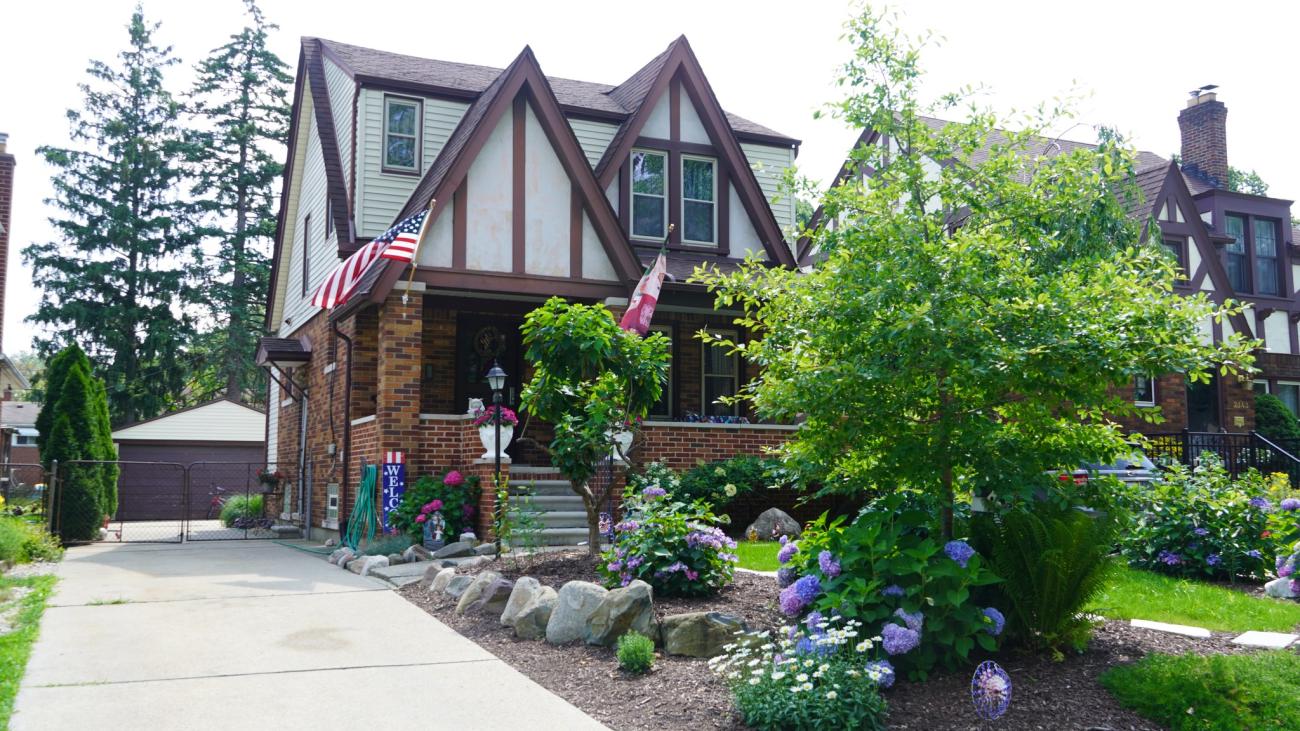State law and local ordinances provide for tax exemptions in certain cases, including but not limited to instances of poverty, disabled veterans, and principle residency.

Property Tax Assessment
The Assessing Department is responsible for placing values on properties within the city of Dearborn as required by State of Michigan law.
Residential Property Assessment DatabaseDearborn residents began receiving assessment notices from the City by mail at the end of February 2025.
An assessment notice is NOT a tax bill.
The assessment notice shows the changes in the assessed value and the taxable value of a home or property. The assessed value represents 50% of the estimated market value of a property, and the taxable value indicates how much of that value must then be taxed.
There are two types of properties assessed by the Assessing Department:
1) Real properties are brick-and-mortar buildings or homes.
2) Personal property, which accounts for all items used to run a business.
Both types of property must be assessed and taxed each year, per state law.
The assessing process determines the usual selling price (or market value) of a home or business property.
This is used to determine the property's worth and the taxes the owner will pay to the City of Dearborn.
The value of a property is assessed each year.
The assessment is determined by several factors including but not limited to:
- The building size and location
- The building construction or materials used
- How much land the is property on
- What additions have been made to the property/main structure
- Land improvements and how much those improvements cost
- Damage or construction to the land or structure
How Taxes are Determined for Real Property
Property taxes equal the taxable value of a home, business, or commercial brick-and-mortar building multiplied by the millage rate.
Property Taxes = Taxable Value / 1,000 x Dearborn Annual Millage Rates
This math formula is set, required, and enforced by the State of Michigan to be used in all Michigan cities, townships, and villages. It is not created or set by the City of Dearborn.
The City of Dearborn is responsible for determining and inputting the assessed value of a home or business property in Dearborn into the math formula that is created and required by the State of Michigan to set property taxes.
Assessing Land Value & Economic Condition Factor (ECF) Studies
Changing the Taxable Value of a Property
Property taxes are based on a math equation set by the State, so it isn’t possible to change the taxable value of a property. However, if you disagree with the assessed value of your property, you can ask that it be reviewed again.
If the assessed value of your property changes, it may impact how much the City taxes your property.
How to Appeal the Assessed Value of your Home or Property
- 1.) Contact the Assessor’s Office. Many appeals are simply misunderstandings or misinterpretations of facts that can be resolved effectively in the office. Verification of the accuracy of the record card is also important to ensure the parcel is being assessed correctly.
- 2.) Submit a request for an appeal to the March Board of Review. Appeals may be sent in person or by letter. Meet dates, times, and locations of the March Board of Review are printed on the annual Change of Assessment Notice that is sent by mail. Applicants appearing before the March Board of Review are advised to provide information that helps to substantiate claims of over-assessment, such as photographs, appraisals, and/or listings of comparable sales, along with a completed Board of Review Petition.
- 3.) File an appeal with the state. If you did not receive the desired outcome through the March Board of Review, you may further petition through the Michigan Tax Tribunal (MTT) website: Michigan.gov/TaxTrib. Residential properties must appeal to the March Board of Review before this step. Commercial and industrial properties are not required to appear before the March Board of Review before this step.
The March Board of Review is the only time during the year in which an owner is able to appeal the value of their property. Appeals in value can be heard for the present year only.
State law (MCL 211.7u) provides for a property tax exemption for the principal residence of persons who cannot contribute to the public charges by reason of poverty. Dearborn also has specific guidelines for applying for the Poverty Tax Exemption: Dearborn Poverty Tax Exemption Guidelines. In order to receive a poverty exemption at 50% of value, a Dearborn homeowner must annually file a completed application form with all required additional documentation by the last meeting of the December Board of Review.
A Principal Residence Exemption (PRE) exempts a property from the tax levied by the local school district for school operating purposes, up to 18 mills.
To qualify for a principal residence exemption on a dwelling, state law requires that the property be (1) owned by a qualified owner as defined by state law (2) be occupied as a principal residence by that owner of the property, (3) none of the disqualifying factors listed in MCL 211.7cc(3) apply.
The PRE is a separate program from the Homestead Property Tax Credit, which is filed annually with the Michigan Individual Income Tax Return.
Disabled Veterans Exemption (MCL 211.7b) provides an exemption from property taxes under the General Property Tax Act for a disabled veteran who was honorably discharged from the United States Armed Forces or for the un-remarried surviving spouse of that disabled veteran.
To obtain the exemption, the property owner or their legal designee shall file an affidavit (form 5107) showing the facts with the assessing office after Jan. 1 and before Dec. 31 for each year that the exemption is requested. Postmark of Dec. 30 will be accepted. Proof from the VA must be presented for receipt.
Obtain a Property Deed
A Liber and Page Number for the property being recorded is required to process a deed. A residential property's subdivision name can be found by searching the Residential Property Assessment Database.
Deeds are available through the Wayne County Register of Deeds:
Wayne County Register of Deeds
International Building
400 Monroe
6th Floor
Detroit, MI 48226
Deeds are available through the Wayne County Register of Deeds.
Wayne County Register of Deeds
International Building
400 Monroe
6th Floor
Detroit, MI 48226
Assessing Documents
Email: DearbornAssessors@Dearborn.gov
Mailing Address:
16901 Michigan Ave, Ste # 5
Dearborn, MI 48126
Phone:
313-943-2140
Hours of Operation:
Monday through Friday
8 a.m. to 5 p.m.
Please call or email any requests for documents or property inspections. All inquiries via email or voicemail, should be responded to within 48 hours and no later than 7 business days. If you need to set up an appointment to meet with the assessor or other member of the assessing staff, please contact the main office via phone or email and one of our staff members will be happy to assist. Record cards are available for viewing during normal business hours of operation.
